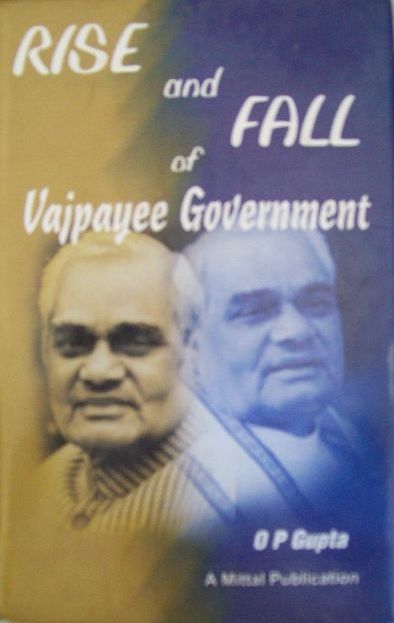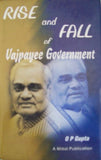Rise and Fall of Vajpayee Government
Regular price
Rs. 695.00
The National Democratic Alliance (NDA), led by Prime Minister Atal Bihari Vajpayee, was originally formed in 1998. It again came to power in 1999 and remained in office at the Centre till May 13, 2004. Following the defeat of the NDA at the Lok Sabha elections, a new Congress-led United Progressive Alliance has come to power with the eminent economist, Dr. Manmohan Singh, as the Prime Minister. The Vajpayee government took some bold strides after assuming office. Its governance was marked by emphasis on the nation’s development and security. Its policy of liberalisation and disinvestment and privatisation, and promotion of Information Technology, gave a boost to the economy and Indians started feeling like active partners in a globalised set-up. The success of the Kargil confrontation with Pakistan and the nuclear initiative brought laurels for the government. But the Vajpayee government had its own flaws and weaknesses. According to the author, the NDA government communalised the polity and sought to destroy the social fabric of the country. Farmers were neglected. Women were marginalised and huge unemployment alienated the youth. The many scams, particularly in the Defence sector, alleged corruption in certain deals connected with the disinvestment and privatisation process and, to a great extent, the ghastly Gujarat riots, brought bad name to the Vajpayee government leading to its ultimate collapse. This book traces the different stages of the Vajpayee government and should be read by all those interested in statecraft and governance.
O.P. Gupta (b. 1948) has since 1982, been a political activist. He obtained his M.Phil. degree in 1982 from Dr. B.R. Ambedkar University, Agra. He has attended a number of national and international seminars and conferences at which he presented papers on aspects of Indian politics.
Guaranteed Safe Checkout





